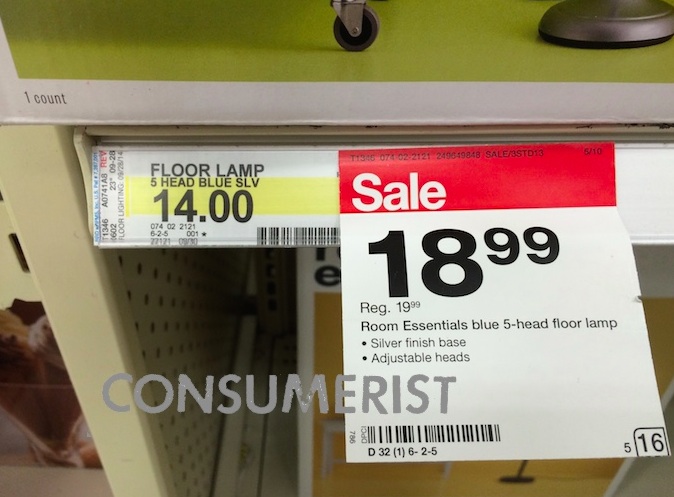Target is a discount store, but also a strange and mystical place where Doritos are refrigerated, sale items are simultaneously 50% off and free, and customers are notified when something isn’t on sale. As a Consumerist reader, Erin knew to look out for Target’s strange version of reality, and was able to get an item for the lower shelf tag price rather than the higher “sale” price. [More]
target math
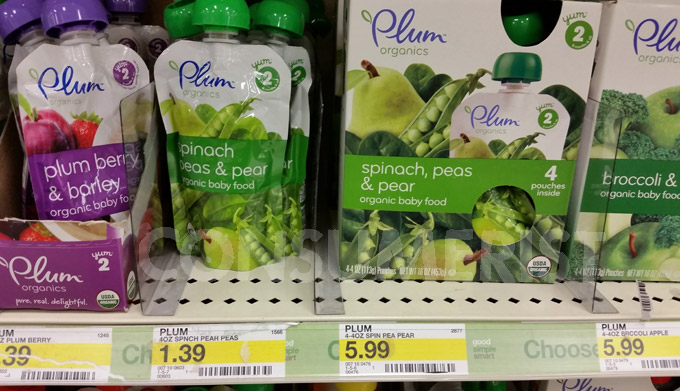
Target Math Means You Pay Extra For Cardboard Box, Less Choice
Bulk buying is good. When you buy multiple food pouches that come in a single box, for example, it makes life easier for cashiers and maybe for you when you unload your groceries. That’s what Jared thought when he went to buy some baby food pouches at Target. [More]
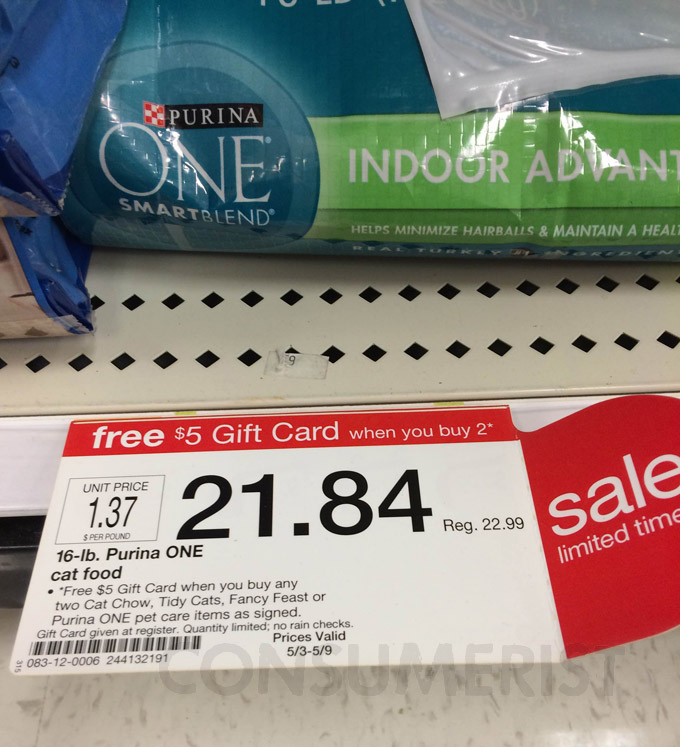
Let’s Review Again What ‘Target Math’ Is And Why It’s Bad
When shopping, you compare prices for different sizes and quantities of the same item and weigh that against your needs to determine which is the best deal. Except at Target. At Target, customers have to deal with a special kind of math, where putting an item on sale means that the price goes up, and where buying things in larger quantities means that you pay a higher unit price. It’s a special place where the bargains are plentiful, but make no sense. [More]
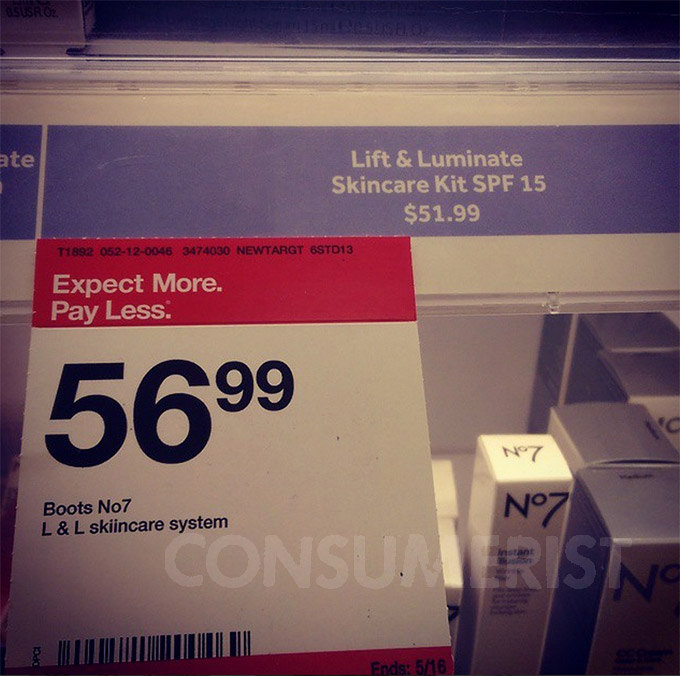
With Target Math, The Price Increases When The Sign Gets Bigger
Target is a popular and successful retail chain, which has somehow managed to spread nationwide and woo customers in spite of its poor grasp of math. Here’s yet another example of Target Math, a special way of calculating sale prices and promotions that isn’t unique to Target, but for some reason turns up on their shelves very, very often. [More]
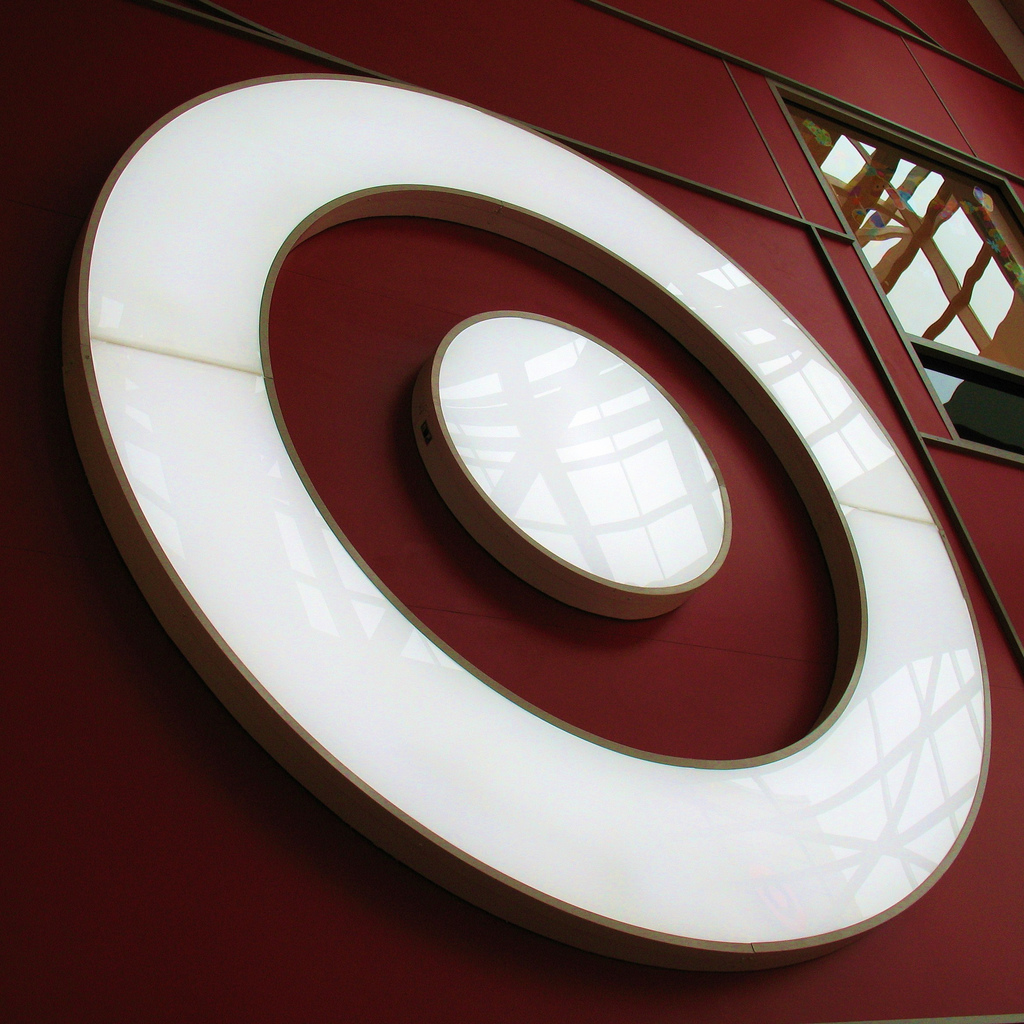
Target Agrees To Pay $3.9M To Settle False-Advertising Lawsuit
It seems some of that infamously fuzzy Target math finally caught up with the retailer, as the company has agreed to pay $3.9 million to settle a false-advertising lawsuit brought by prosecutors in California. [More]
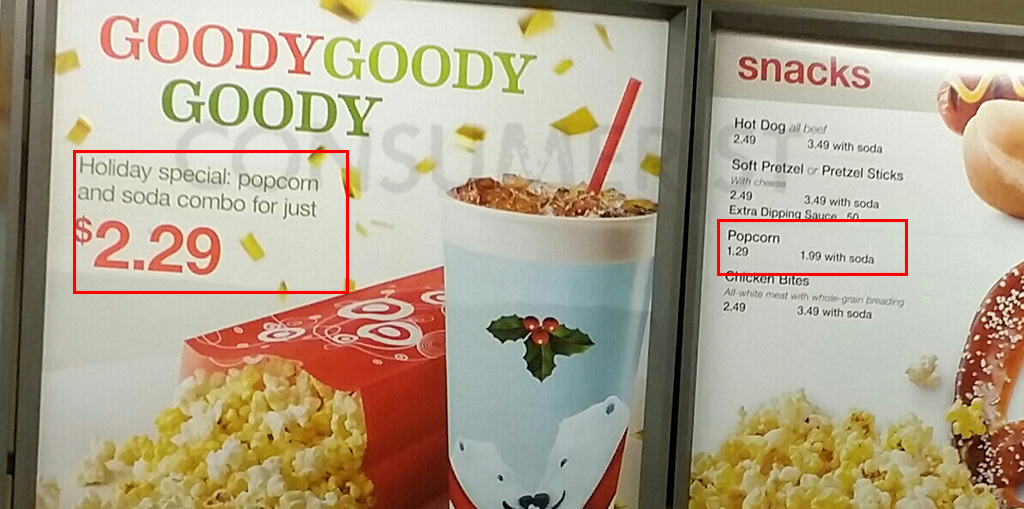
Target, Where Holiday Menu Specials Actually Cost You More Money
The jingle bells are jingling, the Santas are ho-hoing and it’s officially okay for everyone to be in the holiday spirit. But while it’s always nice of businesses to try to offer special deals for holiday shoppers, Target might need to rethink how it approaches the idea of a “deal.” [More]
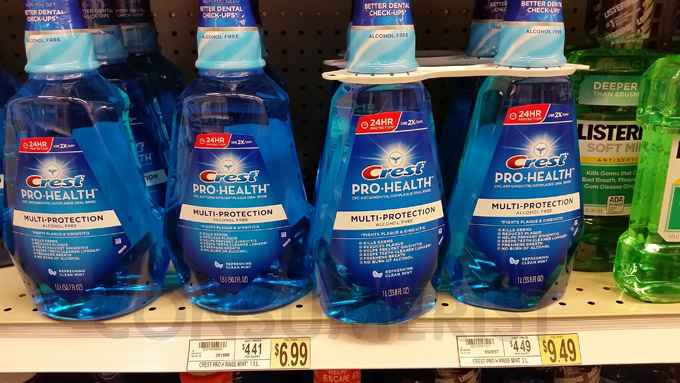
Wegmans And Walmart Deploy Target Math To Sell OJ, Mouthwash
Buying in bulk to save money seems like a good idea, but in practice it doesn’t work so well. Want proof? Check out these examples of unit prices that go up the more you buy. We call it Target Math, since the phenomenon happens often in Target stores. Not exclusively in Target stores, though, as you will see. [More]
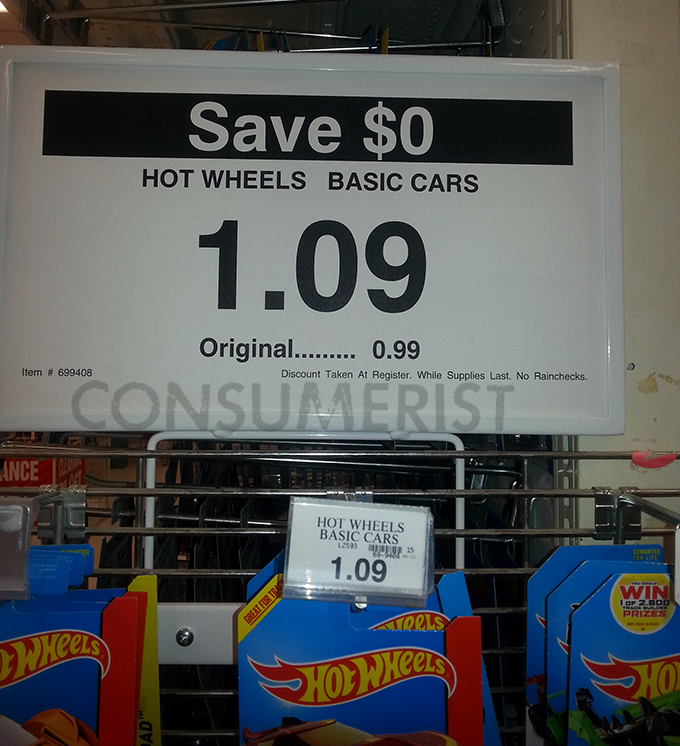
Like The Sign Says: This “Sale” At Toys ‘R’ Us Will Save You Exactly No Money
While we’ve become savvy enough shoppers to notice when a bit of Target math is about to render any advertised sale useless in the face of actual math, most of the time it’s up to shoppers to realize they’re not actually about to get a deal. But at Toys ‘R’ Us, at least the signs are up front about the fact that you’re about to save exactly nothing in a so-called sale. [More]
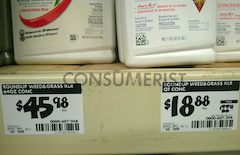
The Fun Thing About Target Math? You Can Find It At Home Depot & Walmart, Too
Don’t ever let anyone tell you what you can and can’t be, friends. The world is your oyster, the sky is the limit, the cliche is yours to abuse and the rules are made to be broken. So when you’re a retailer, don’t think the only store that can have Target math. [More]
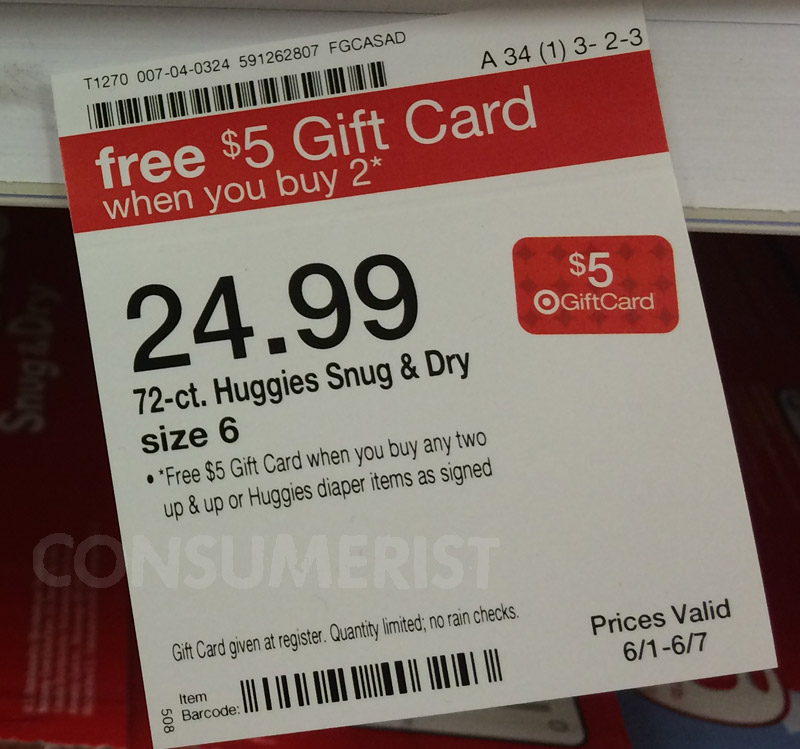
Spend $5 Extra To Get $5 Gift Card At Target
Target is a successful retailer, which is impressive considering the company’s collective poor grasp of math. Reader Mireille was shopping for diapers there and spotted an interesting deal on diapers. If customers bought two boxes and paid $2.50 above the listed price on the shelf tag for each, they would get a $5 gift card. Wait, what? [More]
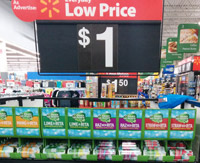
Obviously, Walmart Doesn’t Want You To Drink 12 Budweiser Margaritas
If one can of Budweiser’s malt beverage margarita-like substance costs one dollar, how much should twelve cans cost? That’s right…$12.97. Wait, what? If this math sounds a little off to you, apparently you don’t work at Matthew’s local Walmart. [More]
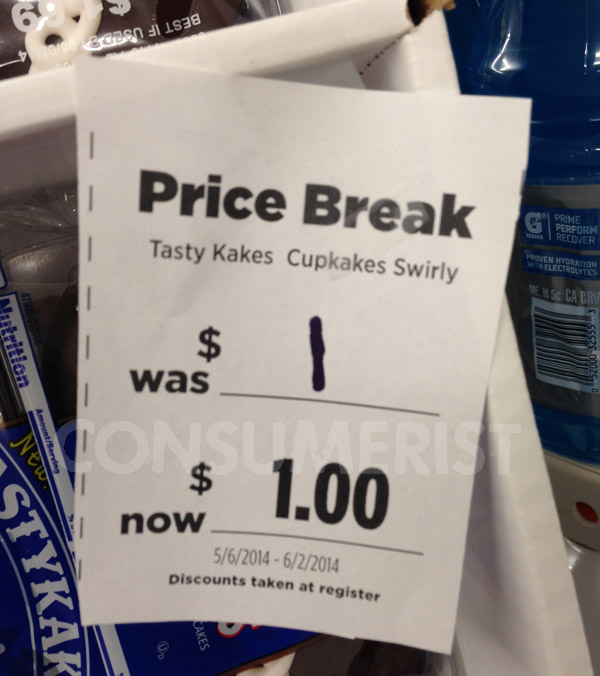
Adding Decimal Places Does Not Mean These Tastykakes Are On Sale
When you add decimal points to a price, does that make it a different number? That is to say, is $1 different than $1.00? It’s more accurate, sure, but it’s not a discount. Unless you’re shopping at Dollar General with reader John. [More]
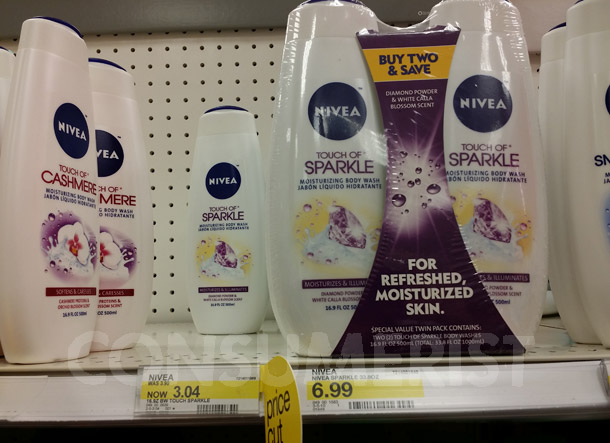
Personal Grooming Is Easy, But Math Is Difficult
Usually, buying in bulk saves you money. Buying a larger container or multi-pack boosts sales numbers and lowers prices for consumers. This makes perfect sense…until it doesn’t. Just ask these readers, who had to give a few seconds of serious thought to the pricing of their personal care items while shopping recently. [More]
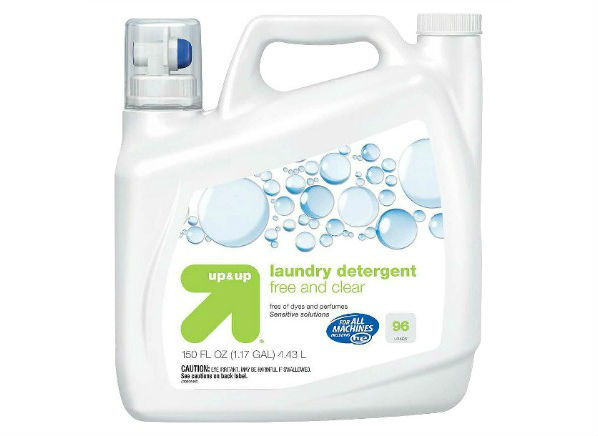
Consumer Reports Talks To Target, Cleans Up Detergent Label
You might look at a bottle of laundry detergent and idly wonder whether the bottle really contains 96 loads’ worth of soap. Then you probably keep on using the soap and forget that you ever questioned the wisdom of the label. Fortunately, our clean and fresh colleagues over at Consumer Reports have a calculator and a mission to save us all from inaccurate dosing caps. [More]
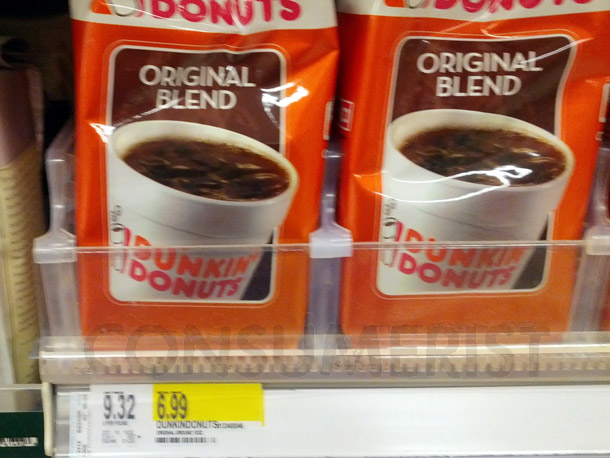
Target Math: Dunkin’ Donuts Edition
Quick, which bag of coffee would you rather buy? Twelve ounces for $6.99, or twenty-four ounces for $16.99? Reader Mike spotted this piece of traditional Target math at a store in Hawaii. [More]
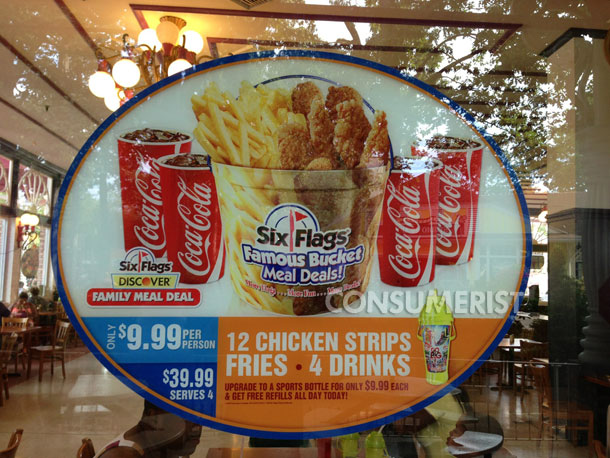
Fuzzy Math At The Amusement Park And The Grocery Store
Look, Six Flags, it’s summer vacation. We’re here to eat terrible food and be hurled around at high speeds on rides. We’re not here to do math, and we’re really not here to figure out why your “family meal deal” for 4 costs a few cents more than four chicken dinners purchased separately. [More]
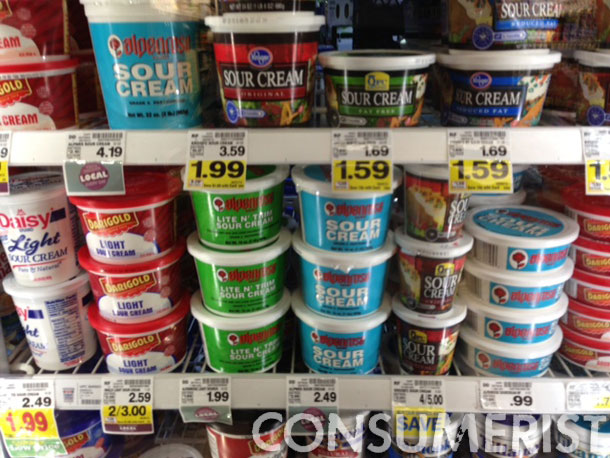
QFC Applies Target Math, Rewards Customers For Buying Less Sour Cream
Sarah tried. Really, she did. She wanted to save money and packaging by purchasing a larger quantity of her preferred brand of sour cream, Alpenrose but her local grocer and their Target math stood in her way. What’s Target math? That’s when it costs you more per unit to buy something when you buy a larger quantity, despite the normal rules of commerce. [More]
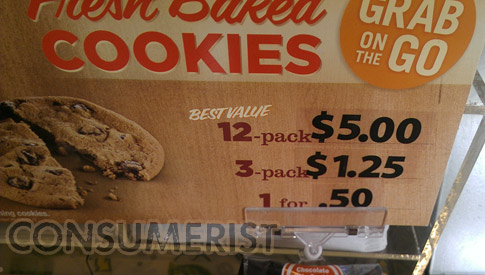
Put A Bird And A Price Tag On It: Fuzzy Math In The Wild
Usually, retailers lower the price of an item per unit when you buy more of it. For example, a gallon of juice costs much less per unit than a single-serving bottle. When this system falls apart, and it frequently does, we call it “fuzzy math.” [More]


